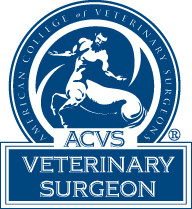Don’t Have Surgery On Your Pet Without Reading This First
Your pet will need surgery.

We don’t like to think about it, but the truth is that most companion animals will find themselves in the operating room at some point in their lives. It may only be for spaying or neutering, or perhaps to remove a little skin growth, but the odds are that someday you will be faced with the decision to put your trusted friend under the knife. Naturally, the question will arise as to whether your primary care veterinarian can perform the surgery, or whether you should enlist the services of a specialist. The following information will help you answer that question.
All vets perform surgery as part of their daily practice. During our four years of veterinary school we are taught basic surgical techniques. The challenge is that we must also learn dermatology, cardiology, internal medicine, radiology, anesthesiology, etc. And we learn those disciplines in dogs, cats, horses, cows, pigs, sheep, goats, chickens, hamsters…well, you get the idea. There just aren’t enough hours to learn complex surgical techniques in the available time. Instead, some veterinarians pursue advanced surgical training after graduation from veterinary school. Specific training guidelines are established by the American College of Veterinary Surgeons and typically involve a minimum of a one-year internship and three-year residency. In addition, wannabe surgeons must perform research, publish articles in scientific journals, and pass a grueling multi-day exam. If successful, the candidate becomes a board-certified surgeon and earns the moniker, “Diplomate of the American College of Veterinary Surgeons.” As of February 2013, there were 1,698 board-certified veterinary surgeons. These specialists are dedicated to providing the best in surgical care. Whereas your primary care vet focuses on the day-to-day well-being of your pet, the surgeon is trained specifically in complicated procedures. 
The decision to refer your pet to a surgical specialist is made after a thoughtful conversation with your veterinarian. Your vet will consider his or her familiarity with the procedure, the need for specialized equipment, the degree of monitoring required during and after surgery, and the overall risks. Surgical specialists should be viewed as an available resource for your pet’s overall health. We can provide consultations and continuing education for your veterinarian. Together, we strive to develop and implement a plan that maximizes the health of your beloved pet.
Leave a reply →